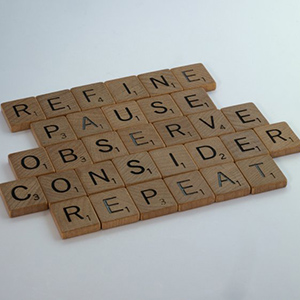
If you’re planning to divorce, the process of mediation can save you time, money, and stress. Mediation will give you and your spouse an opportunity to hammer out the details of your divorce settlement before going to Court. Because you and your spouse took the time to mediate, you will both already know what to ask the judge for and what your spouse will agree to. It will greatly expedite your divorce proceeding because any conflicts will have already been negotiated and settled.
Another advantage of mediation is privacy. Mediation is a confidential process and details of your negotiations with your spouse do not become a part of any public record. So, if you prefer to keep your private affairs private, mediation is a good choice.
Mediation has proved successful in 85% of the cases where it has been used so there is reason to be hopeful that mediation can work for you too.
A successful mediation is predicated on each spouse providing complete and truthful information to each other and the mediator. If your spouse has a history of lying, concealing financial information, being uncooperative or abusive, mediation might not be right for you. In this situation you may have no choice but to hire a divorce attorney.
Be prepared to provide relevant financial information. You will likely be asked for tax returns, credit card and bank account statements, and employment information. Appraisals and inventories of houses, real estate, and personal property may be needed. You will need to provide documentation of your assets and liabilities. You will be told in advance by your mediator what information to provide and be given the time needed to collect everything. Your spouse will do the same. Child custody, maintenance (also known as alimony) and child support can be discussed during your time with the mediator. Finally, if agreements on all important matters can be reached, a final agreement will be documented as a proposal to the judge for determination.
The mediation process usually takes place in one day. Depending on the complexity of your divorce and the level of agreeableness between you and your spouse the mediation my last anywhere from a few hours to a full day.
 You may assume that all mediators are lawyers and indeed many lawyers do work as mediators. But not having a license to practice law does not preclude anyone from being a professional mediator. In fact, mediators can come from a variety of backgrounds. They can be social workers, therapists, accountants, financial analysts, and other types of professionals. What is important is that they receive proper training. There are organizations that provide training and certification to professional mediators. You will want to ask anyone you are considering telling you about their background and experience, their training, and if they are certified. Unless you have a complex divorce, a mediator who is not an attorney can usually provide you will less of a financial burden.
You may assume that all mediators are lawyers and indeed many lawyers do work as mediators. But not having a license to practice law does not preclude anyone from being a professional mediator. In fact, mediators can come from a variety of backgrounds. They can be social workers, therapists, accountants, financial analysts, and other types of professionals. What is important is that they receive proper training. There are organizations that provide training and certification to professional mediators. You will want to ask anyone you are considering telling you about their background and experience, their training, and if they are certified. Unless you have a complex divorce, a mediator who is not an attorney can usually provide you will less of a financial burden.
Let your mediator know in advance if you have any fear or hesitation about meeting with your spouse for mediation. If you feel there is a possibility that your spouse may become aggressive toward you or anyone else, you should bring that up in advance so it can be addressed. It may not preclude you from being able to mediate but all parties should agree on what to do if things get too heated or stressful.
Mediation can be an emotional time. Feel free to discuss with your mediator if a trusted individual can be with you for support. If the session runs long, individuals may get fatigued or hungry. Feel free to ask for a break when you feel you need one. Bring healthy snacks and water to help you stay feeling well.
Try to remain as calm and patient as possible. Leaving the mediation or threatening to do so will not help you achieve your goals. Refrain from turning your emotions toward your mediator; they are there to protect your interests and make sure that things remain fair and both sides get what they are asking for as much as possible.
Remain attentive. Think outside the box. Be willing to compromise. It may be helpful to think about, and discuss with others, what areas you may be willing to give a little and what issues are deal-breakers for you.
Finally, look over your final agreement carefully. You may want to take a break just before doing so. You have the right to ask a lawyer to look the proposal over before you sign it.
 Conclusion
ConclusionFor many couples, divorce mediation is an excellent alternative to battling it out in court. Mediation can usually help you get the process over and done with more quickly and with less financial consequence than a longer more drawn-out divorce that takes place in a court and compromises your privacy.

Rob Titus is a caring Kansas lawyer with over a decade of litigation experience in family law courts across the state. An avid listener as well as communicator, Rob Titus hopes to ensure that no Kansas individual or family finds themselves without the means to defend themselves in court.
Connect with Titus Law Firm to stay up to date with changes in Kansas Family Law so that you and your family can benefit from the knowledge and experience of dedicated litigators.
Call Us Now To Get Your Case Reviewed (913) 543-4500